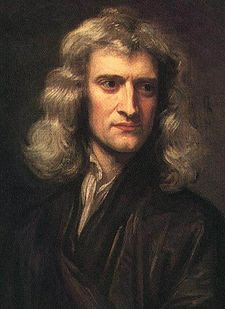1. Parse each verb in Cat. 1, 2, 3, 5.
Catullus 1
Dono- present active indicative first person singular
Donare to give
Solebas – 2 person singular imperfect active indicative
Solere- to be in the habit of
Putare- present active infinitive 1st person ; to think
Esse- 3rd person present active infinitive, to be
Explicare- present active infinitive, to unfold
Habe- present active imperative second person singular- habere- to have
Maneat- present active subjunctive third person singular- manere- to remain
Catullus 2
Ludere- present active infinitive- to play
Tenere- present active infinitive- to hold
Dare- present active infinitive- to give
Solet- present active indicative- third person singular- solere- to be in the habit of
Incitare- present active infinitive- to enrage
Lubet- present active indicative third person singular- lubere- it pleases
Iocari- present active infinitive- to jest
Credo- present active indicative first person singular- credere- to trust
Acquiescet- future active indicative third person singular- acquiescere- to lie with
Ludere- present active infinitive- to play
Possem- imperfect active subjunctive first person singular- posse- to be able
Leuare- present active infinitive to lift
Est- present active indicative third person singular- esse to be
Ferunt- present active indicative third person plural- ferre- to bring
Catullus 3
Lugete- present active imperative second person- lugere- to mourn
Veneres- present active sunjunctive second person singular- venerare- to adore
Est- present active indicative third person singular- esse- to be
Amabat- imperfect active indicative third person singular- amare- to love
Erat- imperfect active indicative third person singular- esse to be
Noverat- pluperfect active indicative third person singular- noscere- to get to know
Mouebat- imperfect active indicative third person singular- movere- to move
Pipiabat- imperfect active indicative third person singular- pipiare- to chirp
Negant- present active indicative third person plural- negare- to deny
Sit- present active subjunctive third person singular- esse- to be
Devoratis- present active indicative second person plural- devorare- to devour
Ruebent- future active indicative third person plural- rudere-to roar
Catullus 5
Vivamus- present active subjunctive first person plural- vivare- to live
Amemus- present active subjunctive first person plural- amare- to love
Aestimemus- present active subjunctive first person plural- aestimere- to estimate
Occidere- present active infinitive – to fall
Redire- present active infinitive- to return
Possunt- present active indicative third person plural- posse- to be able to
Occidit- present active indicative third person singular- occidere- to fall
Est- present active indicative third person singular- esse- to be
Da- present active imperative second person singular- dare- to give
Fecerimus- perfect active subjunctive first person plural- facere- to make
Conturbabimus- future active indicative first person- conturbare- to confuse
Sciamus- present active subjunctive third person plural- scire- to know
Invidere- present active infinitive- to find
Possit- present active indicative third person singular- posse- to be able to
Sciat- present active subjunctive third person singular- scire- to know
2. Translate: Horace 1.11
May you not worry about what the gods give to me, or give to you
nor be intimidated, Leuconoe, of the Babylonians numbers.
over many winters for triburt Jupiter ultimate,
not that the stone has weakened the sea
Tyrrhenum, wisdom,
for jealous time is fleeting
Seize the day, have little trust in the future
3. Translate: Job 1
In the land of Uz there lived a man named Job and he was a simple and righteous fearing God and avoiding evil and born unto him were seven sons and three girls.
And in his possession were seven thousand sheep and three thousands camels
Likewise, 500 yoke of oxen and 500 female asses and a exceedingly large family and this man is greater than any of the men in all the east
And he walked with his sons and they made a feast throughout their home, each one his own day, and his men sent and summoned three of his sisters to put away the banquet and drink when they at any time they went over around the day of the banquet they were sent by Job and sanctified that who they ambushed at dawn he offered burnt sacrifices even though he said that his sons were sinners burned the sacrifice for every sin and they indeed, truly my sons have sinned and they praise God with their hearts thus they make Job (all day) but with the day the sons came God appeared before them
and on that particular day the sons of God were sent to appear before God and with them came Satan



